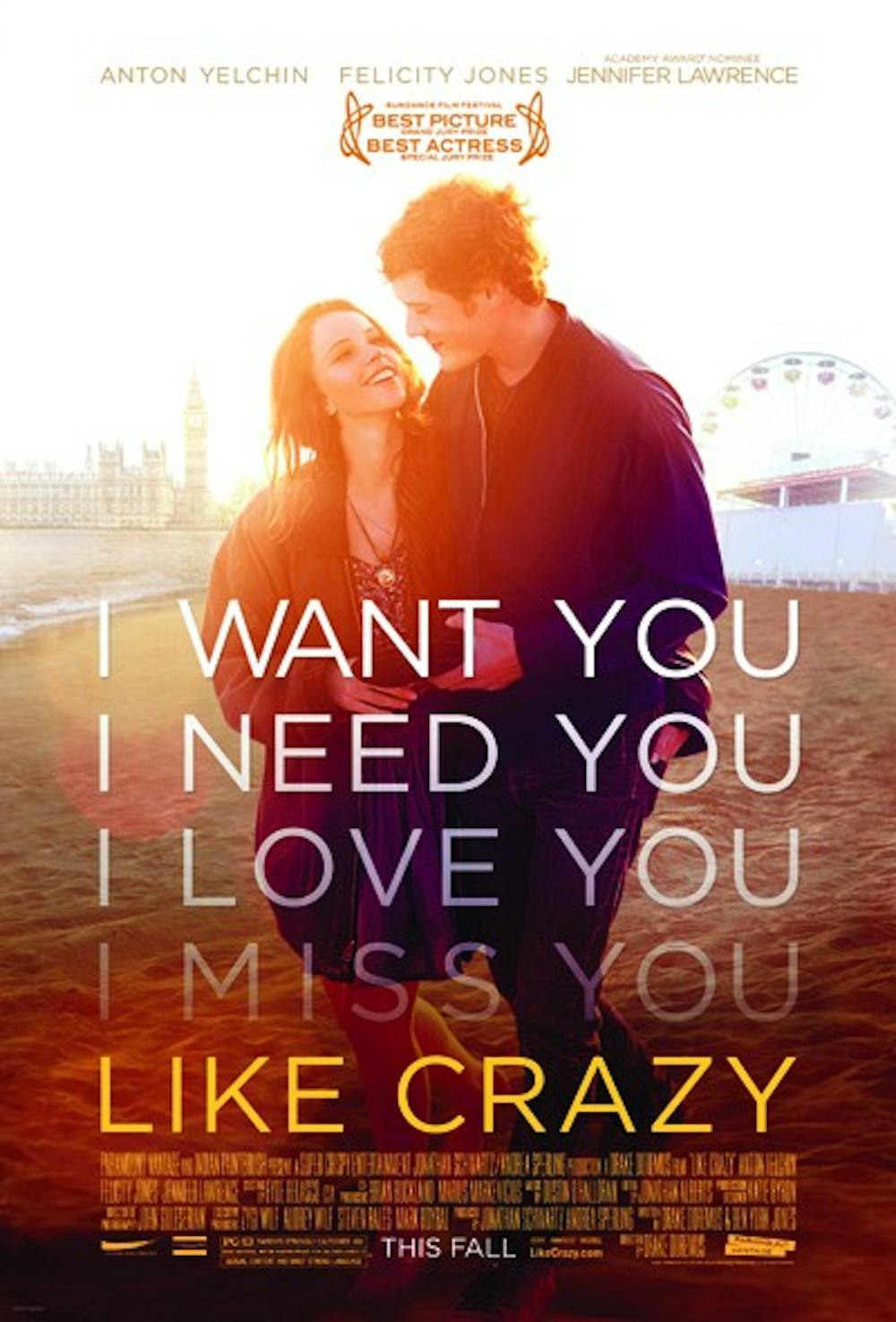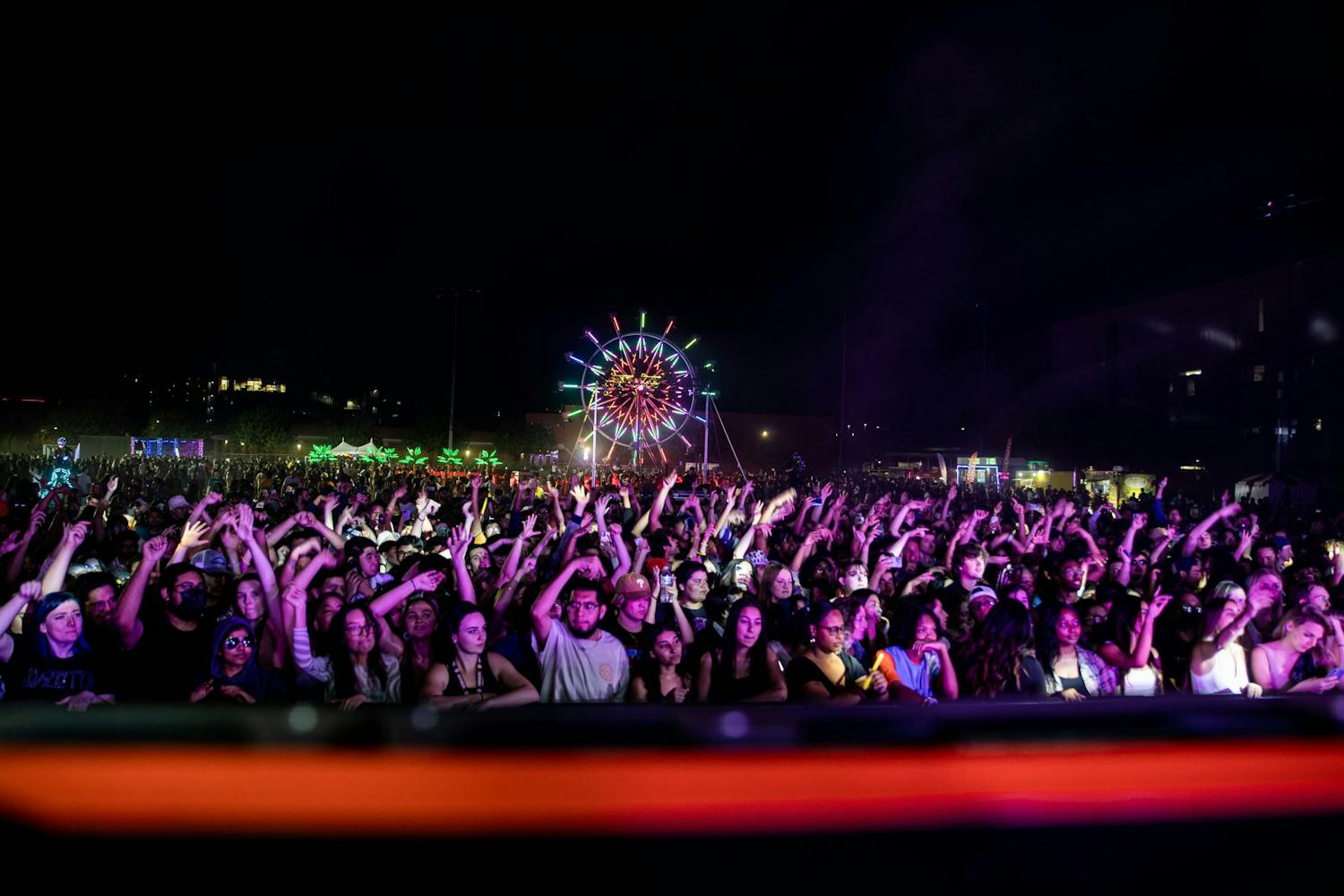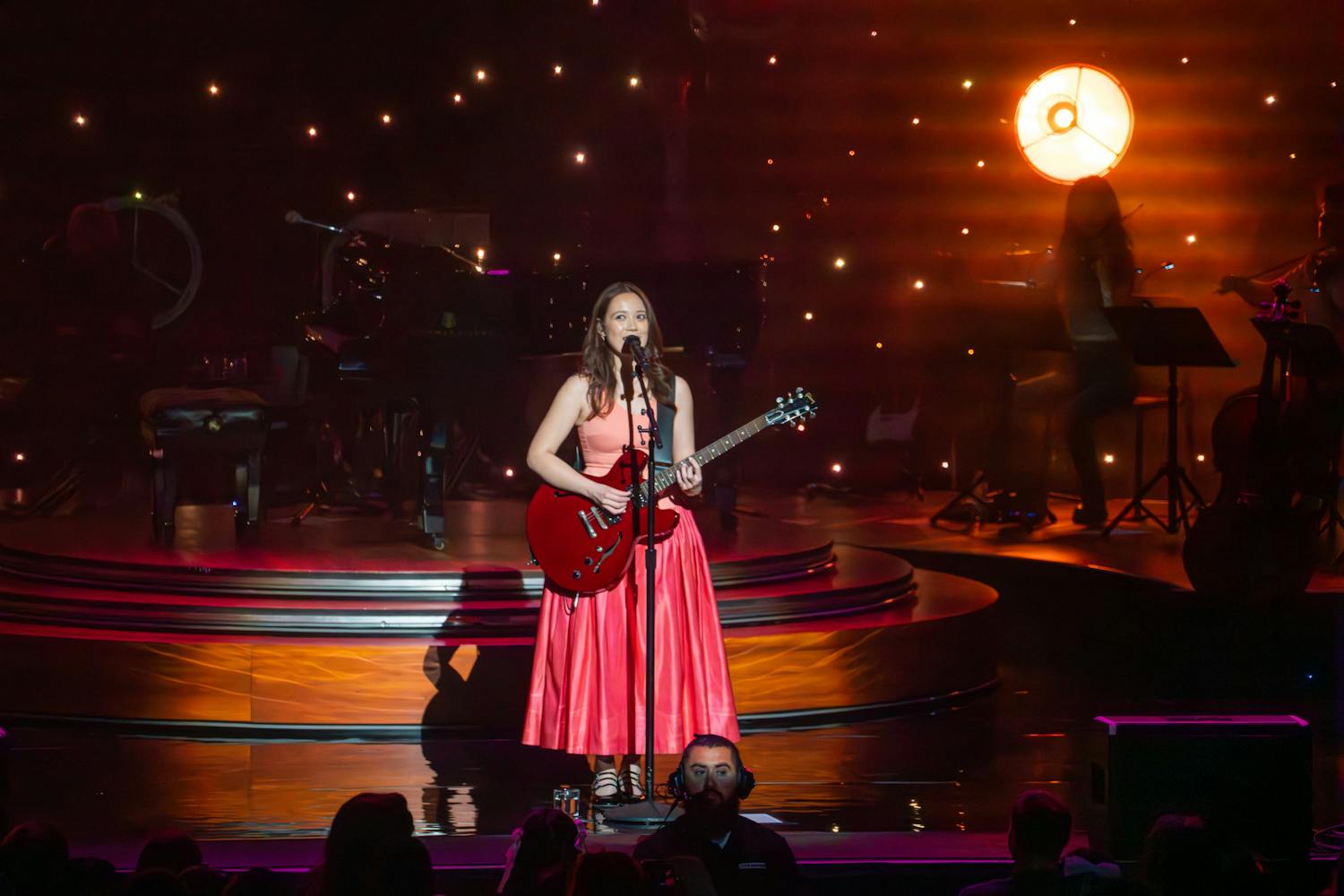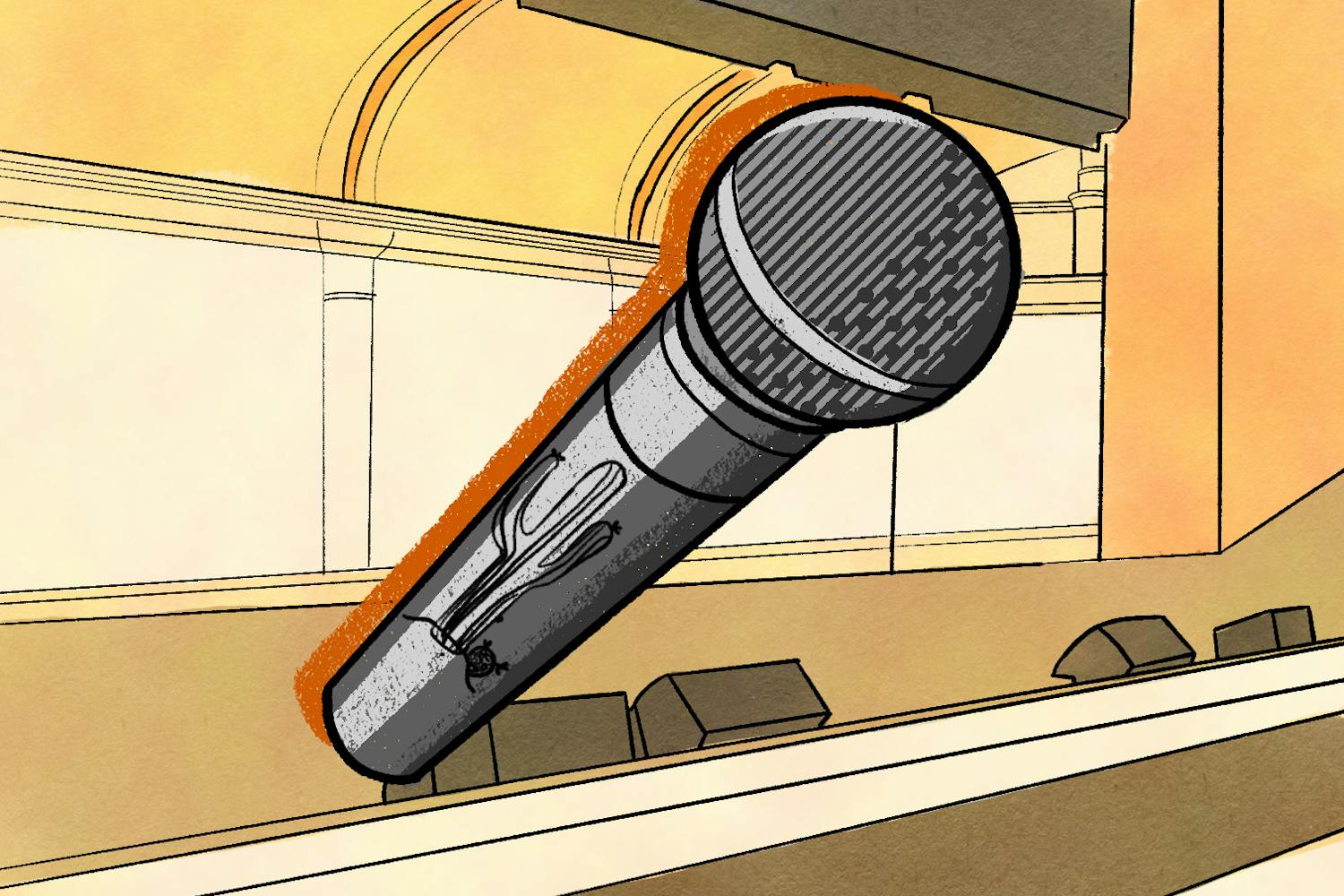In the upcoming indie romance drama, “Like Crazy,” actors Anton Yelchin (“Alpha Dog,” “Charlie Bartlett,” “Star Trek”) and Felicity Jones (“The Tempest”) tackle the roles of a romantic yet turbulent pair that endure the twists and turns of a relationship when separated by a continent and an ocean. Picking up awards for the Grand Jury Prize for U.S. Dramatic Film as well as the Special Jury Prize for Jones’ performance at the Sundance Film Festival, “Like Crazy” is already proving to be a big winner. The tangibility of the duo’s chemistry onscreen couldn’t have been scripted, and in fact, wasn’t. In an interview with The State Press, they describe their movie-making process together.
The State Press: How would you describe your characters?
Felicity Jones: Anna is very impulsive. She finds Jacob, falls madly in love with him and wants to hold onto him to the detriment of their relationship ultimately, but that’s what you should like about her — about them both — because they’re both prepared to be quite irrational because it’s the nature of their love for each other.
Anton Yelchin: I think Jacob is extremely introverted and closed off and I think Anna is the first person he opens up to and commits to, and the first sign of that is giving her his first creation. His whole life revolves around this work he does and his first creation is for her. They act completely irrational but out of this obsessively love one another. And I think the film itself is this look at love as something that is gray. Marriage is a device they use legally to try to be together. Their love does not increase or decrease. It’s the legal consummation of something they already share. Falling apart. It defies what we traditionally think of as moral.
SP: With the entire movie improvised, what was the process for that? Did that put some pressure on your roles?
FJ: It actually made it easier. We had an outline of all the stage directions and characters and points of conversation we needed to hit, but then we had the freedom in the dialogue, so it’s all invented and is done in the moment.
AY: It was liberating; you get the most freedom to create a character that you normally can’t with strict dialogue because (in improvisation) you’re trusted to know (the character) the best that you can.
SP: What was the challenge of the role?
FJ: The challenge was to make it as naturalistic as possible — to be as “in it” as possible. It’s documentary style and you almost feel that you’re a fly on the wall. We had to make it seem that it was a real relationship. And that has very different demands … It’s much more about the feeling and emotion and being as true as possible.
SP: The conversations and scenes are very realistic and relatable. Were you able to draw from personal experiences to create the scenes?
FJ: That’s what we’ve heard from a lot of people. I’ve had some similar conversations (that are in the movie). When you’re in a relationship, you think your relationship is beyond everything else, (but) those are arguments that couples all over the world are having. They’re universal.
SP: How is this role different from other roles you’ve played?
AY: This is the first role I’ve played that’s truly introverted and quiet and contained and internalizes everything, as opposed to being bigger or broader. It was really extraordinary to study that. It was interesting. The character was only able to externalize what he was thinking at the breaking point.
FJ: I like playing someone who wasn’t cautious, who was in the moment and made impulsive decisions, which is what attracted me to her in the first place.
SP: Do you relate to those individual characteristics?
FJ: I think you’re attracted to things that are different from yourself in a character because it’s more interesting, and you get to play out a fantasy version of yourself.
AY: Yeah, I think Jacob is very different from me. I’m not passive-aggressive.
FJ: Just aggressive.
AY: Just aggressive. I got to explore something different about myself, explore a different version of what I have inside, I guess.
SP: What do you hope people take away after seeing the movie?
FJ: I hope they find it to be true in some way.
AY: That’s the best way to put it — to find some honesty in it. There’s grayness to love as opposed to the way we traditionally view it. It’s not black and white or solution-based. There’s no solution here, it’s just the way it unfolds.
Reach the reporter at mgrichar@asu.edu Click here to subscribe to the daily State Press newsletter.





